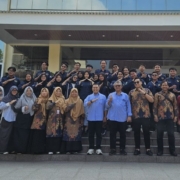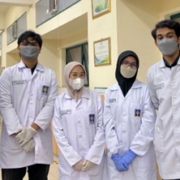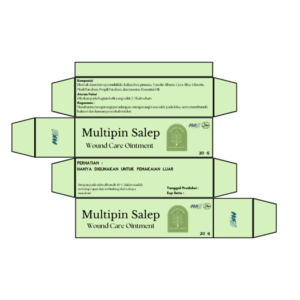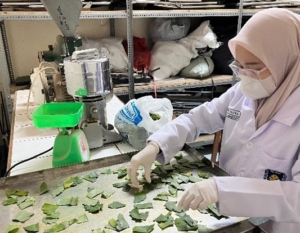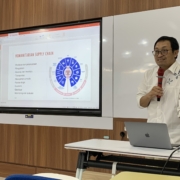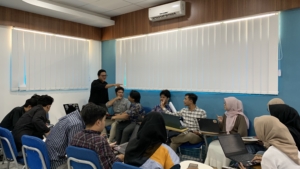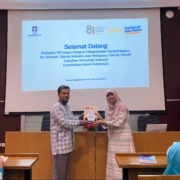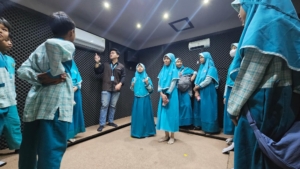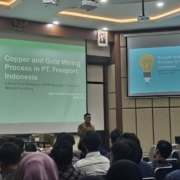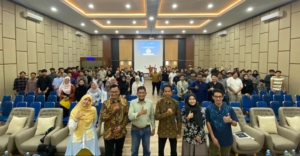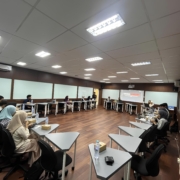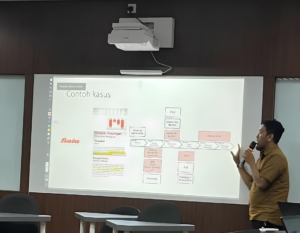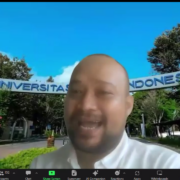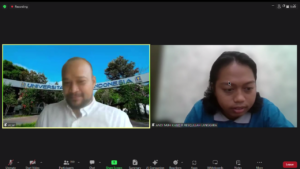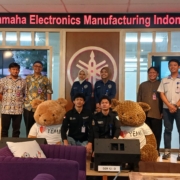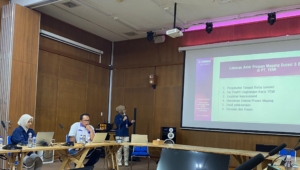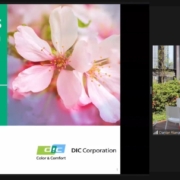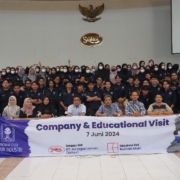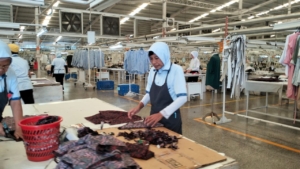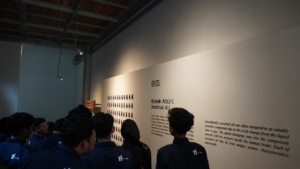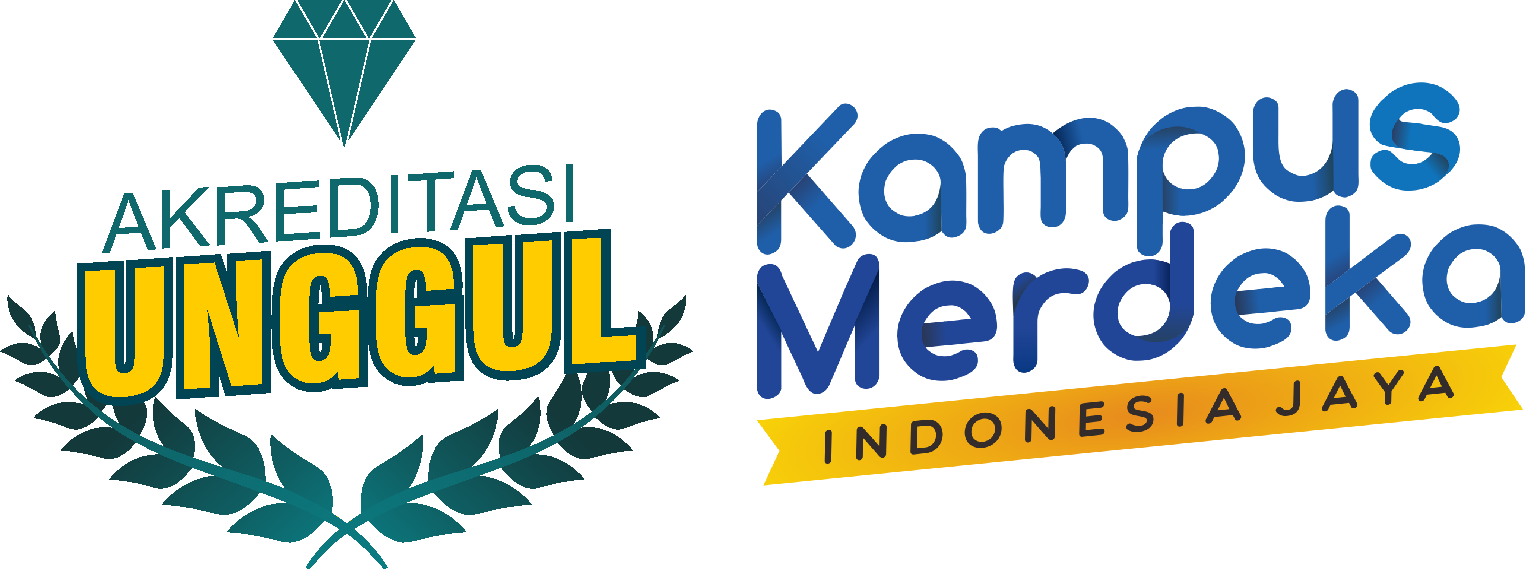Industrial Engineering of Universitas Islam Indonesia (UII) received a benchmarking visit from Industrial Engineering of Sahid University Surakarta (Usahid Solo) on Monday (8/7). Representatives from UII Industrial Engineering warmly welcomed the 29 guests who came that morning at Learning Space 2 FTI UII. Present at the meeting was the Head of the USS Industrial Engineering Study Program, Anita Oktaviana Trisna Devi, S.T., M.T., along with several representatives of USS Industrial Engineering lecturers and students.
Opening and delivering remarks, the Head of the UII Industrial Engineering Department, Dr. Drs. Imam Djati Widodo, M.Eng.Sc. welcomed the visiting guests. Furthermore, Anita Oktaviana expressed the purpose and expectation of this visit in her speech. She said, “We want to try to apply the values at UII in our study program, so that later we can move faster for the better. One of them is related to learning, academics, and laboratories.”
Next, there was the presentation of the academic process by Dr. Drs. Imam Djati Widodo, M.Eng.Sc. Then continued to the explanation of the Fast Track program by the Head of the UII Industrial Engineering Master Program, Winda Nur Cahyo, S.T., M.T., Ph.D. Finally, the explanation of the MBKM program by the Secretary of the UII Industrial Engineering Bachelor Program, Annisa Uswatun Khasanah, S.T., M.Sc. At the end of the presentation of the material, there was a Q&A session and discussion between the attendees.
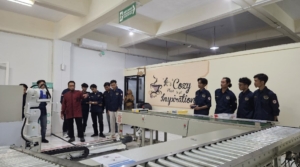
As a memento, the activity continued with the handover of souvenirs between UII Industrial Engineering and Usahid Solo Industrial Engineering by each representative. After that, the group together with Ir. Muhammad Ridwan Andi Purnomo, S.T., M.Sc., Ph.D., IPM. as the Head of the Industrial Engineering Department of UII, Ira Promasanti Rachmadewi, Ir., M.Eng., IPU as the Secretary of the International Program of Industrial Engineering UII, and several other lecturers toured the laboratories and facilities owned by Industrial Engineering UII. Some visiting guests also tried to simulate the tools available in each laboratory.
Salwa Nur Rahma

